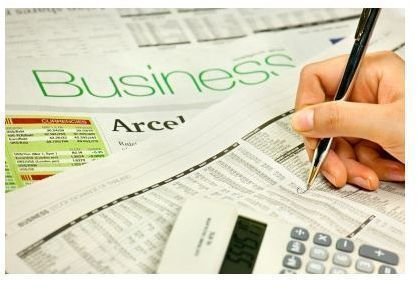Do You Need to Pay Taxes After Selling a Small Business?
You may find that selling your small business has as many problems as running it did. You know the worth of your business and its potential for the future and you would like this to figure into the selling price. Finding the right buyer who has the necessary finances as well as an interest in continuing the business is not easy. Just after you think everything is all wrapped up you find out that there are taxes after selling your small business.
Two aspects of the sale can figure into taxation matters. The first is figuring out your gain or loss on the sale. Once this is done you will need to decide the character of that gain, whether it is from capital or from ordinary income. Your interpretation can be subjected to IRS scrutiny and ultimately this will decide the amount of taxes that you have to pay on the sale.
Separation of Aspects of a Business
There are different aspects of the business that you need to separate into capital assets and ordinary assets.
Capital assets are the property, machinery, equipment and vehicles that are normally used for the purposes of business and which are not from part of the usual traded items in the business. The value of these items is depreciated during the course of the business, and when they are put up for sale, it is this depreciated value that will be considered as the seller’s value. The difference in the value of these assets when sold to the buyer makes for a capital gains or loss.
Ordinary assets are those that consist of stock and inventory and other items that are consumed during the course of the business. Each of these items has to be assessed for both fair value properly and the sale price for these assets individually. The appreciation on cost assessed will come to the seller as ordinary income for which he will be liable to personal income tax.
Taxes on Gains/Losses
Gains on capital assets sold to the buyer constitute capital gains and are charged for tax depending on the whether the gain is long-term or short-term. Assets held for more than a year would constitute long-term capital gains and would attract lower taxes.
Income accruing to the seller from sale of ordinary assets would be included with his personal income tax and he would have to pay tax accordingly.
Reducing your Taxes
Before you conclude any sale of your business it is best to make a complete assessment of your tax liability before you conclude the deal. Remember that the buyer has equal interests in the matter as the figures you allocate to capital and ordinary assets have to suit him for his requirement to carry the business further. All these figures have to pass IRS scrutiny and be accepted by the tax authorities before they can become a part of the books of the buyer and your liabilities for tax to you as the seller.
So plan for quite a few meetings between you, the buyer and your respective business advisers. You can defer the receipt of the total capital gain and take it in installments. This is called seller financing and even here there are limits to what the IRS would accept. This deferment can only be made for capital gains and is not applicable to ordinary income from the sale.
Once you have decided on the sale and the figures for it, both you and the buyer would have to complete the required paperwork for the IRS and ensure that your figures tally with each other, otherwise this could lead to complications.
References
- IRS: Sale of a Business
- Image Credit: FreeDigitalPhotos.net
